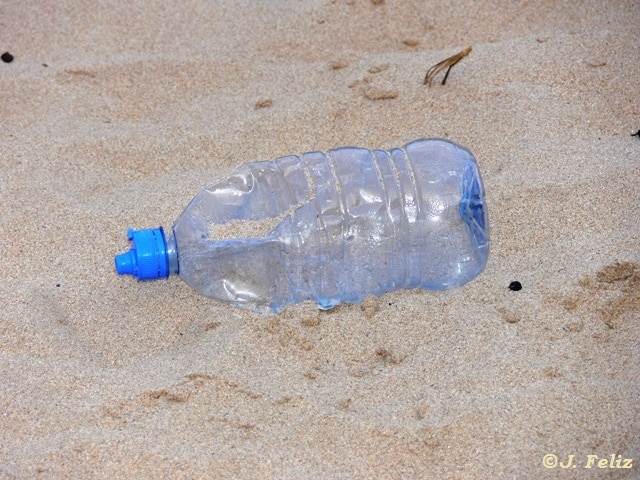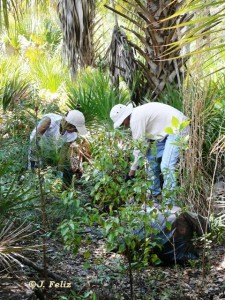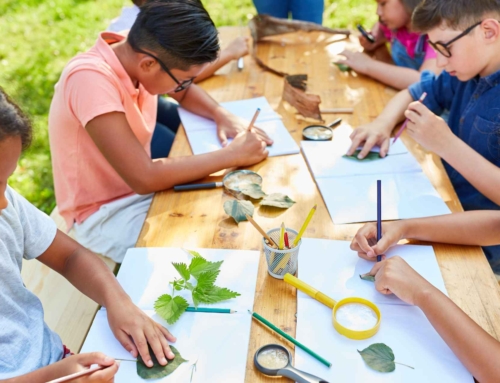Beyond the Vegan Boundary
Disclosure: This post may contain affiliate links
We should aim to go beyond the vegan boundary as there’s always room for improvement.

What's in this post
Share This Story!
Beyond the Vegan Boundary
By Julia Feliz, Guest Contributor
The eastern cougar (USA, excludes the Florida Panther) has been declared as extinct as of Wednesday, March 2, 2011. As a biologist, I find this alarming. It is a very real reminder of the mess that humans are making on this planet. As a human-being and vegan, it’s a very sad day. Most vegans (those that live the lifestyle and not just consume the diet) recognize the plight of domesticated and farmed animals that are heavily “used” by our society. However, I’ve met many that are not aware of the impacts that they may be having on wildlife through their actions. It is commendable that, as a vegan, you are standing up against the oppression of non-human animals. Yet, our growth as vegans doesn’t just stop at what we eat, wear or bathe with, for example. We should aim to go beyond the boundary as there’s always room for improvement. In this case, we can try to include simple actions that benefit those non-humans classified as wildlife.
Did you know that about 3 species go extinct every hour? No, this is not a natural rate. The rate of extinction that is occurring is ALL due to human activity. I’ve heard several vegans comment, “Nature will just balance itself out.” This makes me cringe as it could not be farther from the reality in which human caused impact and changes are occurring much too quickly for species to be able to adapt to them. Adaption to changes, in a natural setting, would take thousands to millions of years to happen – slow enough for an ecosystem or species to be able to deal with the changes.
Today, the top reasons for species extinction include exotic invasive species, habitat destruction, pollution, poaching, and climate change. It can be overwhelming to know so much is happening in our world that needs to be halted. We may not be able to change what was done hundreds of years ago, such as overhunting of species that are now barely grasping to survival. However, the way that I see it is that the more I know, the more I can change my own actions and make a difference even if it may seem like a small step. I’m not saying that I am perfect – I am still working on many issues myself. Don’t be discouraged because you may not be able to do everything. Like in your veganism, just try to do as much as you can to lessen your impact.
These are a few simple ways to combat species extinction. I am hoping these are mostly reminders of things that you already know.
1. Educate yourself on the issues. I have a strong belief that ignorance is never bliss. I try to learn as much as I can be it through an e-book, Google search, or library. Just keeping up to date with everyday news helps too. Once you have that knowledge, pass it on. What’s the point of keeping what you know to yourself?
2. Exotic invasive species plants/animals are those that were introduced to a country or area where they did not exist before that introduction. These species do so well in the area of introduction that they start taking over natural areas and/or negatively impact native species, which may lead to their extinction. Although not all introduced animals and plants will become invasive, scientists estimate that 10% of these will. Once a species has become established, it is incredibly difficult to undo the damage. Exotic invasive species are a top cause for species extinction today. The pet trade is largely to blame for so many escaped species. They sell exotic animals, which people then get tired off or can’t afford to take care off, so they release them into their backyard. These ex-pets may or may not take off on their own from there. A small action you can take is never ever release an exotic animal into the wild. If this animal was kept as a pet, chances are they won’t do to well. There’s also a chance that you may be adding to a serious problem that will affect countless other species if you release them. You can think of plants along the same lines. Once an exotic plant becomes established in a habitat and becomes an invasive species, it will be close to impossible to eradicate. A habitat that was once full of biodiversity, once colonized by an invasive plant, could become a monoculture leading to the extinction of native plants and the wildlife that depended on them. Choose to plant native species in your garden or check before you purchase that beautiful plant – you may be purchasing a problem species.

3. I’ve seen one too many of my vegan friends reaching for that plastic bag. Solution? Carry a large purse with you when you go shopping or remind yourself to bring a reusable bag. Honestly, if I am buying one or two things, I will just grab them and go (OK – I’ll carry 20 things just so I don’t have to take that bag!). Plastic bags are everywhere and guess what?!
They may contain animal fats as a “slip agent” (reduces friction in the material). I don’t think I go a day without seeing at least one floating around while I am driving or walking somewhere (yes, I do pick them up when I can). I’ve seen them in the ocean, by the beach, floating around the desert, in the middle of the street, and in many other places. Italy was the first country to pass a nation-wide ban on plastic bags! However, most of us are yet to be so lucky and have that decision made for us. How does this affect wildlife? Well, in the water, they float around and look like jellyfish, which are a favorite of sea turtles. Bad news for sea turtles that eat them. They are just a small example of the many species affected by plastic. Plastic does not biodegrade and only breaks down into smaller and smaller fragments. It has already been found accumulated inside the bodies of filter feeders and other wildlife that swallow it and as a consequence, often die from its ingestion. Have you heard of the Great Pacific Garbage Patch? It’s an island the size of Texas in the Pacific Ocean made up of nothing but garbage, including plastic. It’s the largest landfill in the world. Wildlife often get caught in this garbage or consume the garbage, which then kills them. The key here is reduction. Try to avoid buying items covered in large amounts of packaging or buy items that come in degradable or reusable containers. Avoid plastic whenever possible.
4. You’ve heard of “Reduce, Reuse, Recycle, right? It’s such a great little reminder of what you can do in your everyday life! Reduce and reuse should be your main goals. If you have to get that one item, try to choose the sustainable version. Recycled is great but not as great as not having to buy it in the first place. Either way, I know green options are not always the cheapest but wherever you can (recycled toilet paper, recycled printer paper, etc.) try to implement them in your life. Even though they are more costly, you’ll be saving our planet’s natural resources – think trees! Trees and other plants are vital to the survival of other species and our own. Trees clean our air, produce part of the oxygen we breathe, prevent soil erosion, but most importantly, forests are home to countless species that depend on them. Non-recycled paper products, for instance, are usually made from virgin (as in old growth) forests, and we really can’t afford to keep losing such precious habitats. Therefore, although they may be a tiny bit more expensive, you’ll be saving little bits of our planet in the long run. A great resource to keep in mind is the library – one of my favorite places. They have all the books you could ever want and you can borrow them for free as long as you have a library card. Some also have a video and music section, which you can also check-out but for a small yearly fee. If you don’t have a chance to get to your local library, then consider purchasing used books or e-books. All these will also save countless trees and in turn, wildlife.
5. I’ve been doing mini-beach clean-ups since I can remember. It doesn’t take much to pick up that little bit of trash that someone else left if you happen to come across it. Chances are you’ll save someone’s life through that simple act! You can do this while you are at the beach with friends or family. You can pretty much do that in any natural area that you may be visiting.

6. There are so many alternatives to the conventional cleaners full of nasty chemicals that are still considered vegan. From natural homemade solutions to biologically friendly cleaners, there are so many choices for dishwashing soap, laundry soaps, hand washing soap, body soaps, floor cleaners, bathroom cleaners, etc. Why is it important to find alternatives? Everything that is used upland (i.e. in your home or neighborhood and makes it down the sink or gutter) will eventually make it into rivers, lakes, and the ocean. That includes chemicals. Yes, the ocean is vast but many of the microorganisms and larger species are quite susceptible to harsh chemicals being dumped in water bodies. Minimize your impact by purchasing eco-friendly vegan cleaners.
7. Join your local environmental group(s) and volunteer to help them protect wildlife and habitats in your local area through lake or beach clean-ups, invasive species removals, and much more.
…and the list goes on and on and on. It’s up to you to educate yourself and extend your boundaries of compassion. As you can see everything we do and the choices we make are connected to so many issues beyond veganism. Remember we’re all in this together and every single one of us counts in this movement. As Henry Ford said, “Coming together is a beginning. Keeping together is progress. Working together is success.”






I’m a vegetarian, slowly working to become vegan. Thanks for this article!!
Great article containing some info. I didn’t know about!
Thanks for sharing!
Wonderful post! I see environmentalism as a natural outgrowth of a vegan lifestyle, and I worry about endangered species. Too many vegans focus only on the suffering of farmed animals. Yes, the numbers of farmed animals who are exploited and killed are staggering, but endangered animals suffer too. Imagine being one of the last of your kind in a world that’s hostile to your survival … having your home destroyed, being unable to find a mate, trying (unsuccessfully) to adapt to a changing climate.